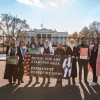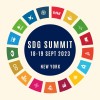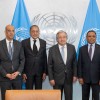The Demand for a Neutral Government During the Election is not Unconstitutional: Tarique Rahman

In a virtual address on the occasion of the 45th founding anniversary of the Bangladesh Nationalist Party (BNP), Acting Chairman Tarique Rahman made a series of critical statements regarding the current state of the government and the upcoming national elections. Rahman asserted that the demand for a non-partisan neutral government during the election is not unconstitutional and is, in fact, essential to uphold the democratic rights of the people.
Rahman began by highlighting the alleged violations of the constitution in the 2014 and 2018 national elections, arguing that the people were cheated in the name of these elections. According to Rahman, the right of the people to elect their representatives directly, as enshrined in the constitution, was taken away, constituting a clear breach of the nation's foundational law.
The Acting Chairman of BNP also contended that the current parliament and government of Bangladesh are illegal, not only in the eyes of the Bangladeshi people but also according to the international community. Rahman cited a statement by 160 world leaders, including over 100 Nobel laureates, who declared a crisis of legitimacy surrounding the government and parliament elected in 2014 and 2018. This, he claimed, demonstrates that the international community recognizes the legitimacy crisis facing Bangladesh's current government and parliament.
Rahman firmly expressed that ignoring the demands of the people for a neutral government in the face of the current illegal government is unacceptable. He called upon the illegitimate government to accept the people's demands without resorting to constitutional excuses, emphasizing that a neutral government during the election period is possible with goodwill.
In his speech, Rahman also traced the history of BNP's role in restoring democracy in Bangladesh during times of crisis, from the anti-dictatorship uprising in 1975 to the present anti-fascist movement. He underlined the party's commitment to the principles of equality, human dignity, and social justice, which he claimed are currently under threat by what he described as a "mafia circle" in power.
Rahman pointed out instances where individuals like Adilur Rahman Khan and Shahidul Alam have faced politically motivated attack cases, while those involved in large-scale corruption appear to evade justice. He highlighted the stark disparities in living conditions, with ordinary citizens struggling to make ends meet while the cost of essential commodities continues to rise.
Regarding accountability, Rahman criticized the government's handling of issues such as dengue outbreaks, suggesting a lack of preparedness and research. He also criticized the Cyber Security Act, which he claimed was used to suppress the voices of the people.
The Acting Chairman of BNP expressed concern about the state of the judicial system, alleging that some judges seemed to advocate for fascism, undermining the role of the courts as protectors of democracy.
In conclusion, Rahman called for the restoration of democracy, human rights, and the people's right to vote in Bangladesh. He asserted that it is time to free the nation from what he termed the "mafia government" and demanded the resignation of Prime Minister Sheikh Hasina. He commended BNP's ongoing struggle for the rights and human dignity of the Bangladeshi people, even in the face of significant challenges and adversity.





























